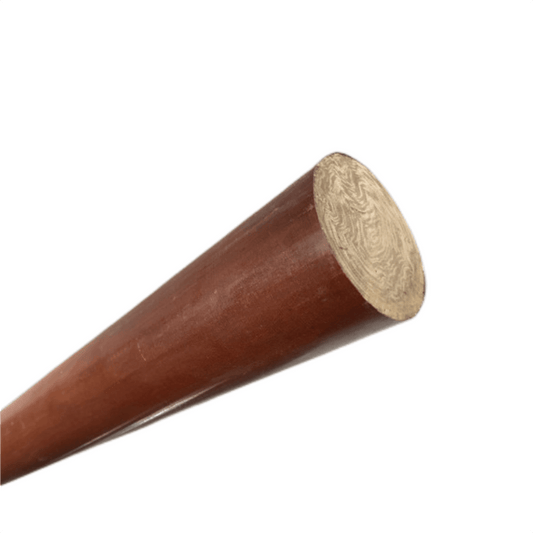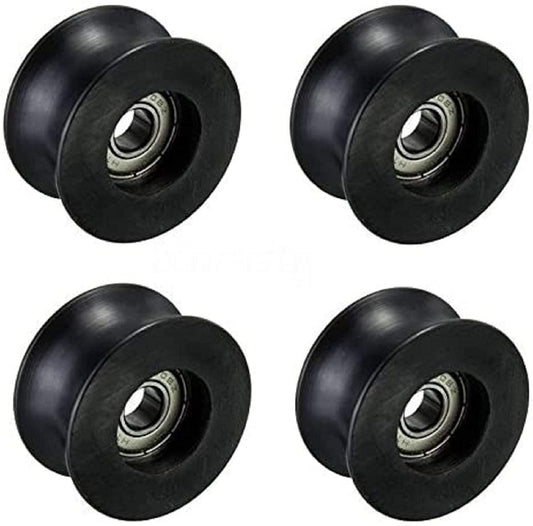In the vast realm of industrial materials, HDPE (High-Density Polyethylene) stands out as a versatile and reliable choice. Its applications span across industries, offering solutions that combine durability with cost-effectiveness. This article delves deep into the world of HDPE, showcasing its diverse applications, from freshwater tanks to engine strainers.
🎉🎉🎉Limited Time Offer Use code: QR4GNY08SHVR at checkout and enjoy a special discount on your entire order! 👉 HDPE plastic

Understanding HDPE and Its Properties
What is HDPE?
HDPE, or High-Density Polyethylene, is a type of plastic known for its strength, durability, and resistance to chemicals and UV light. Its versatility has made it a preferred choice for a myriad of applications, both in everyday life and specialized industries.
HDPE is part of the polyethylene family of plastics, which also includes LDPE (low-density polyethylene) and LLDPE (linear low-density polyethylene). The "high-density" in its name refers to its higher density and crystallinity compared to the other polyethylene types. This gives HDPE superior physical properties that make it well-suited for demanding applications.
On a molecular level, HDPE consists of long hydrocarbon chains bonded together. The high degree of crystallinity stems from the tight packing and alignment of these molecular chains. This crystalline structure is what grants HDPE its renowned strength and rigidity.
Some key properties of HDPE include:
- Durability - Excellent impact resistance and tensile strength. Does not crack under stress.
- Stiffness - Rigid and dimensionally stable. Does not warp or bend easily.
- Chemical resistance - Highly resistant to acids, bases, solvents and other corrosive agents. Does not degrade or leach chemicals.
- UV resistance - Withstands exposure to sunlight without significant degradation.
- Low moisture absorption - Does not absorb or retain water. Maintains properties when wet.
- Lightweight - Density between 0.93–0.97 g/cm3. Lighter than metals or glass.
- Thermal stability - Retains strength and structure across a wide temperature range. Melts at around 130°C.
These properties make HDPE suitable for a vast range of applications demanding durability, chemical resistance, low weight, and long service life. Everything from milk jugs to chemical tanks rely on the unique benefits of HDPE.

Why HDPE?
Beyond its physical properties, HDPE offers environmental benefits. It's recyclable, reducing its carbon footprint and making it a sustainable choice in today's eco-conscious world.
HDPE is classified under resin code "2" for recycling. It can be efficiently recycled and reprocessed into new products. Recycled HDPE retains most of its original properties too, allowing it to replace virgin resin in many applications.
Compared to other plastics, HDPE also has higher recycled content and recycling rates. Around 30% of HDPE in the United States originates from recycled sources. Its recycling rate is also around 30% - much higher than most other plastics.
HDPE has less risk of leaching harmful chemicals compared to materials like PVC. Products made from HDPE are safe for food and drinking water. When disposed of properly, HDPE does not release toxic byproducts either.
All these factors make HDPE an eco-friendly choice. Specifying HDPE aligns with corporate sustainability goals and environmental certifications like LEED. For environmentally conscious companies, HDPE offers the ideal balance of performance and green credentials.

HDPE in Freshwater and Diesel Tanks
The Need for Reliable Storage
Whether it's for residential use or industrial purposes, the need for reliable storage solutions is paramount. Freshwater tanks, for instance, require materials that don't contaminate the water, while diesel tanks need to be robust and leak-proof.
Water storage tanks allow homes and facilities to have sufficient freshwater reserves for daily usage. Contamination can introduce illness-causing microbes, so using the right tank material is crucial. These tanks also need enough strength and crack resistance to withstand water pressure.
Diesel and other petroleum products require sturdy containment tanks as well. Leaks can lead to environmental disasters. The tank material has to resist corrosion and degradation from the diesel's chemical composition.
Some key criteria for freshwater and diesel tanks:
- Durable and crack-resistant
- Ability to withstand pressure
- Does not leach chemicals or impurities
- Resistant to corrosion and environmental damage
- Impermeable to prevent leaks
- Sturdy to avoid ruptures or spills
- Long service life and low maintenance
Selecting the optimal material for storage tanks requires evaluating options against these requirements.

Benefits of HDPE Tanks
HDPE tanks are corrosion-resistant, ensuring longevity. Their seamless construction minimizes the risk of leaks, and their UV resistance ensures they don't degrade under sunlight.
Here are some of the top advantages of HDPE tanks:
- Chemical resistance - HDPE is unaffected by freshwater or diesel's composition. No leaching or contamination.
- UV stabilized - Contains UV blocking additives. Can be used outdoors without sun damage.
- Durable - Withstands pressure and impact without cracking or buckling.
- Seamless - Molded in one piece without weak joints or welds. Prevents leakage.
- Low maintenance - Smooth inner walls discourage residue buildup. Easy to clean.
- Lightweight - Easier to transport and install than metal or concrete tanks.
- Non-toxic - HDPE does not release harmful chemicals into contents. Safe for potable water.
- Recyclable - Can be recycled after use. More eco-friendly than fiberglass.
- Cost-effective - Competitive pricing compared to stainless steel or lined steel tanks.
HDPE tanks ticks all the boxes for reliable storage. Leading manufacturers offer HDPE tanks in a range of sizes and configurations for freshwater and diesel containment. Whether cylindrical, horizontal or vertical oriented, HDPE provides optimal storage performance across applications.

Watertight Liners for Chain Lockers
Protecting Marine Equipment
In the marine world, protecting equipment from the corrosive effects of saltwater is crucial. Chain lockers, which house the anchor chain, are particularly susceptible to water ingress.
Chain lockers are metal compartments located at the bow of ships and boats. Their purpose is to securely store the anchor chain when not in use. However, chain lockers are constantly exposed to seawater, both from the exterior and the chain's wet surface.
Saltwater causes rapid corrosion and deterioration of metal surfaces. Rust accumulation also impedes chain movement. This damage reduces the working life of lockers and may even cause them to collapse under the weight of the chain.
Preventing water entry is therefore critical for locker longevity. Some solutions include:
- Coatings - Epoxy or zinc coatings to resist corrosion. Requires repeated reapplication.
- Drainage - Drain holes and pipes to remove water. Not always effective.
- Gaskets - Rubber gaskets around doors to block water. Easily damaged.
- Liners - Durable inner liners for a watertight seal.
Among these options, liners provide the most comprehensive protection against water damage.
HDPE to the Rescue
HDPE liners offer a watertight solution, ensuring that chain lockers remain dry. Their robust nature ensures they withstand the wear and tear of anchor chains, providing a long-lasting solution.
Here are some benefits of using HDPE liners for chain lockers:
- Waterproof - One solid liner instead of separate panels. No seams or gaps.
- Tough - Withstands constant anchor chain abrasion without cracking.
- Corrosion resistant - HDPE is unaffected by saltwater. Prevents locker corrosion.
- Chemical resistant - Protects against rust inhibitor oils leaching into water.
- Lightweight - Adds minimal weight to the boat compared to metal liners.
- Customizable - Can be molded into any locker dimensions.
- Quick installation - Easily retrofitted into existing lockers.
- Long lifespan - Outlasts metal lockers by 3-5 times or more.
- Low maintenance - Simply hose down to clean; no need for recoating.
HDPE liners are a smart upgrade to keep chain lockers in optimal condition for extended periods. Leading marine suppliers offer readymade HDPE locker liners or custom molding services to suit each locker design.

Raw Water Strainers for Engines
The Role of Strainers
Engines require a constant flow of water for cooling purposes. However, this water can contain debris, which can damage the engine. This is where strainers come into play.
Inboard engines use raw water from the body of water the boat is floating in. This water contains contaminants like silt, seaweed and sand particles. Without filtration, such debris can clog and gradually erode engine components.
Strainers are devices installed along the raw water intake line. They filter out solid particles above a certain size, allowing only clean water into the engine. Common strainer types include:
- Basket strainers - Removable strainer basket inside housing.
- Pot strainers - Fixed strainer with top access cap.
- Tee strainers - Inline strainer with screw-on cover.
- Cone strainers - Tapered strainer basket to handle high volumes.
- Duplex strainers - Dual strainers for continuous operation.
Strainers are vital to prevent premature wear, overheating and clogged tubes or pumps. They prolong engine life and performance.
Why HDPE Strainers?
HDPE strainers are not only robust but also resistant to the corrosive effects of saltwater. They ensure that only clean water reaches the engine, ensuring its smooth operation.
HDPE offers major advantages as a strainer construction material:
- Corrosion proof - Unaffected by seawater, hydrocarbons or chemicals.
- High strength - Can withstand high pressures without cracking.
- Lightweight - Easier to handle than metal, especially for larger strainers.
- Non-conductive - Unlike metals, does not accelerate galvanic corrosion.
- Non-reactive - Prevents contamination of water with chemicals or metals.
- Low friction - Smooth surface improves flow rate and debris capture.
- UV resistant - Suitable for exposed outdoor installation.
- Impact resistant - Withstands vibration from engines without damage.
- Economical - Durable HDPE housings have a low overall cost.
With its exemplary physical properties plus chemical resistance, HDPE is the ideal material for raw water strainers. Leading marine suppliers provide HDPE strainers in various configurations to suit different engine models and boat types.

Conclusion
HDPE's versatility is truly remarkable. From freshwater tanks to engine strainers, its applications are diverse, reflecting its unique properties. As industries evolve and the need for reliable materials grows, HDPE is poised to play an even more significant role in shaping our world.
This article explored just a sample of the many uses of HDPE across industries. In the water sector, HDPE enables safe and durable storage tanks. For marine vessels, it protects vulnerable equipment from seawater damage. And in engine systems, HDPE strainers maintain smooth performance.
HDPE conquers challenging environments that quickly degrade other materials. It combines sturdiness and chemical resistance with sustainability. Whether used above ground, underground or underwater, HDPE rises up as an engineering champion.
As environmental awareness and safety requirements continue to rise, HDPE will undoubtedly widen its footprint. Its green credentials and advanced performance position it as a problem solver for contemporary needs. From established infrastructure to emerging technologies, the future looks sunny for HDPE.
Are you intrigued by the potential of HDPE? Do you have any experiences to share? Dive into the comments section below and join the conversation. Let's explore the world of HDPE together!







